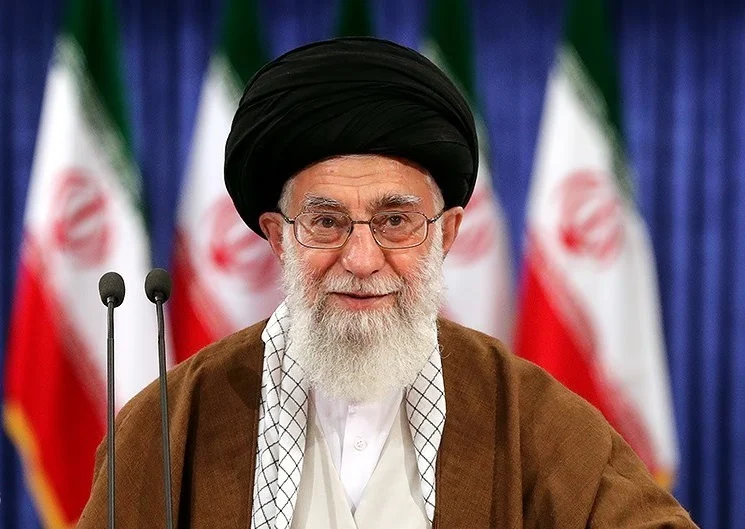WhatsApp is a useful tool that many of us frum Jews use. It enables us to communicate with our family, friends, rabbonim, and community in a secure and convenient way. WhatsApp was always regarded as relatively clean and kosher, compared to other social media platforms that are full of harmful and distracting content.
But this may soon change with WhatsApp Channels, a new feature that will allow users to follow people and organizations they are interested in in a separate tab called Updates. WhatsApp Channels is a tool for admins to send text, photos, videos, stickers, and polls to their followers. Users can find and join channels through a directory they can search or invite links sent in chats, email, or online.
This is very much like Twitter or any other social media platform, which we know are not kosher at all. In fact, WhatsApp Channels is designed to compete with Twitter and attract more users to its platform. Social media is known to expose us to negative influences, waste our precious time, and lower our standards of tznius and kedusha. Even if WhatsApp claims that Channels will be private and protected by strong privacy measures, we know that there is no guarantee that the content will be beneficial or suitable for our neshamos.
I am very concerned about this new feature, since WhatsApp is already on almost everyone’s devices and people will probably ignore it without realizing it is a full-scale Twitter-like social media. I fear that many of us will be tempted to follow channels that are not aligned with our values and mission as frum Jews. I also worry that some of us may create channels that are not appropriate for our audience or purpose.
Therefore, I urge all of us to be cautious and vigilant about this new feature. We should not compromise on our standards of communication and information consumption.
One possible solution is to switch to Signal, another chat app that is similar to WhatsApp but does not have the Channels feature. Signal is also much more encrypted and secure than WhatsApp, so we can communicate with more confidence and privacy. Alternatively, we can disable the Updates tab on WhatsApp or limit ourselves to only follow channels that are relevant and kosher for us.
WhatsApp Channels is a risk to kosher communication. We should not let it undermine our commitment to Torah and Yiddishkeit. We should not let it interfere with our connection to Hashem.
Name withheld upon request
NOTE: The views expressed here are those of the authors and do not necessarily represent or reflect the views of YWN.
DO YOU HAVE AN OPINION YOU WOULD LIKE TO SEE POSTED ON YWN? SEND IT TO US FOR REVIEW.
(YWN World Headquarters – NYC)












19 Responses
While I appreciate the concern, I believe that the main problem with such watsapp has nothing to do with inappropriate content, although this is also a problem. The time that is wasted on these apps are so much more problematic. While inappropriate content is an issue to some people, it is extremely rare for someone to properly manage their usage. This is the conversation we need to be having.
Telegram has this feature and it’s a morass of immorality. Hashem Yeracheim
Adults are adults. Some may follow these channels, some may not. Why don’t you worry about your own dalet amos, and leave the others to make their own choices.
“WhatsApp was always regarded as relatively clean and kosher, compared to other social media platforms that are full of harmful and distracting content.”
WHAT?!?!?!?!?!?!?!?!?!?!?!?!?!?!?!?!?!?!?!?!?!?!?!?!?!?!?!?!?!?!?!?!
WhatsApp is currently worse for us than twitter. It is the ultimate echo chamber. It makes good yidden stupid.
Which channel are you concerned about?
I’m so shocked that something that gedolim have said is forbidden and destructive has announced a new feature that is forbidden and destructive? what will we do now? what next? smartphones? adultery? meth? Is no aveira sacred?
“I’m so shocked that something that gedolim have said is forbidden and destructive . . .”
The gedolim have denounced the internet assur in general, yet here we sit, with alleged “chareidim” posting day and night in the CR.
Thank you for letting me know about this feature I’m going to look into it and be sure to use it to its full extent
I have rarely seen a comment as foolish at that of Takehmamash above. Yes, adults are adults, but someone bringing an adult’s attention to a potential michshol is highly appropriate and in the realm of basic care, decency , and common sense.
Obviously it’s useful for people to know the differences between WhatsApp and Telegram, for example. I personally have neither. My wife has WhatsApp, but I we would never bring telegram into the house becuase the channels are arteries to everything Assur. Thank you for this informative article. I’ll make my informed adult, Jewish decision now. Takeh
Don’t get added to groups you aren’t sure about
Can’t it be used in a strictly Kosher way? Must it be used in the letter writer’s abusive way?
WhatsApp is the most important issue facing the Jewish people in 2023?
Here’s a simple fix: No apps. Use a flip phone with no Internet access. It works to make and receive calls, nothing more. What did anyone do before the societal and cultural curse of smart phones?
There is no more standard of tzniuse anymore it’s either you get it or you don’t before mashiach and war is coming all of the thing is on the kitchen table the nisayon is the heart of the person
“It enables us to communicate with our family, friends, rabbonim, and community.”
Who communicates with rabbonim via whatsapp? Maybe I’m out of the loop but that doesn’t seem very normative. Maybe some folks do, but the “family, friends, rabbonim, community” thing is more cutesy than reality.
By the way, all of that can be done via text, which is less problematic than whatsapp. You want whatsapp? OK but you don’t NEED it.
“Enables” sounds like its needed. It’s not.
@ takahmamash
It’s called giving adults warning SO THAT they can make their own decisions!
Like during COVID, people were told to wear masks. Even before we were FORCED to, we were WARNED about it, so that we can make an adult decision.
DO YOU REALLY THINK THAT TELLING ADULTS OF SOMETHING POTENTIALLY DANGEROUS IS A BAD THING??????
Whatsapp is forbidden by all Gedolei Hador including smart phones and internet.
Of course alot of people need it for business purposes and other charity or volunteer organizations but for the average person who can do without it is Ashrychem BuOylem Hazeh and Beoylem Haboo….
Yabia Omer,
Who said it’s the “most important issue”. It’s an issue. Why does it have to be the most important one in order to be allowed to discuss it? We are that narrow minded that we can only focus on one thing at a time?